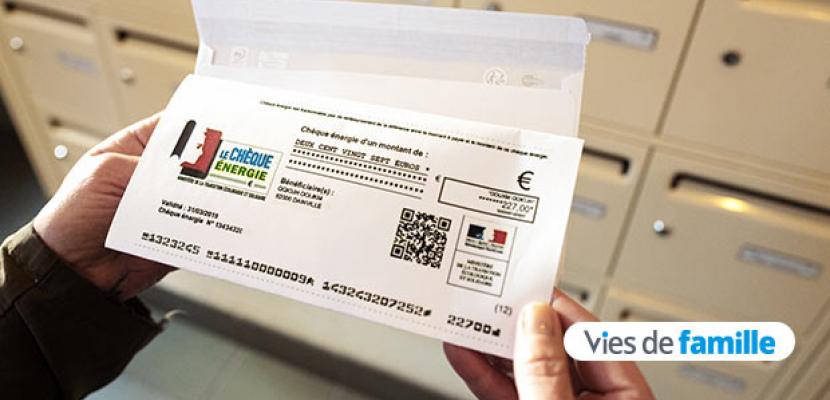Image

The energy voucher, an automatic aid for vulnerable households
Published on 04 May 2021

France
This is the good practice's implementation level. It can be national, regional or local.
About this good practice
The energy voucher is a payment aid for energy expenses, regardless of the heating energy used. This scheme replaces the social tariffs which were abolished in 2018.
It is awarded automatically to households according to two criteria: income and household composition. It is also necessary to be a tenant or owner of a dwelling subject to property tax on 1 January of the year.
The State examines the resources declared to the tax authorities and automatically sends an "energy voucher" of between 48 and 277 euros to eligible households in April.
This energy voucher can be used to pay a housing energy bill (electricity, natural gas, tank gas, fuel oil, wood, etc.) or housing charges. It can also be used to pay for energy renovation work in the home. Energy suppliers and distributors are required to accept it as a method of payment.
The energy voucher is available to households whose annual tax reference income does not exceed: €10,800 per year for a single person; €16,050 for a couple; €19,260 for a couple with one child; plus €3,210 per additional person in the household.
Its attribution gives access to other advantages such as :
• Free connection of electricity and natural gas,
• 80% discount on the cost of a trip in the event of suspension of supply due to non-payment,
• No charge for rejected payments,
• In electricity, no power reduction during the winter break.
It is awarded automatically to households according to two criteria: income and household composition. It is also necessary to be a tenant or owner of a dwelling subject to property tax on 1 January of the year.
The State examines the resources declared to the tax authorities and automatically sends an "energy voucher" of between 48 and 277 euros to eligible households in April.
This energy voucher can be used to pay a housing energy bill (electricity, natural gas, tank gas, fuel oil, wood, etc.) or housing charges. It can also be used to pay for energy renovation work in the home. Energy suppliers and distributors are required to accept it as a method of payment.
The energy voucher is available to households whose annual tax reference income does not exceed: €10,800 per year for a single person; €16,050 for a couple; €19,260 for a couple with one child; plus €3,210 per additional person in the household.
Its attribution gives access to other advantages such as :
• Free connection of electricity and natural gas,
• 80% discount on the cost of a trip in the event of suspension of supply due to non-payment,
• No charge for rejected payments,
• In electricity, no power reduction during the winter break.
Resources needed
The average value of vouchers issued was €148 in 2020. So, the total amount of cheques distributed is EUR 811 million, to which is added approximately 4% in management fees for the service provided by the "services and payment agency".
Evidence of success
Energy voucher concern 5,5 millions of households in France i.e. 19% of households (in 2020).
The voucher use rate is 80.1%.
This is an important simplification because this aid is obtained automatically without any action on the part of eligible households.
Both tenants and owners are eligible.
This aid can be used to pay for renewable energies such as wood, or a "green" energy supplier.
The voucher use rate is 80.1%.
This is an important simplification because this aid is obtained automatically without any action on the part of eligible households.
Both tenants and owners are eligible.
This aid can be used to pay for renewable energies such as wood, or a "green" energy supplier.
Potential for learning or transfer
This aid responds to the issue of administrative simplification necessary for accessibility to the most modest households.
The automation of the distribution of the aid makes it easy to access and simplifies the work of the social services. The State uses information it collects on the tax situation of households and this also simplifies management.
Consideration could be given to covering other scales with local authorities that have access to household tax situations.
The automation of the distribution of the aid makes it easy to access and simplifies the work of the social services. The State uses information it collects on the tax situation of households and this also simplifies management.
Consideration could be given to covering other scales with local authorities that have access to household tax situations.
Further information
Website
Good practice owner
You can contact the good practice owner below for more detailed information.
Organisation
Ministry of Ecological Transition

France
Ile-de-France
Contact
project manager
